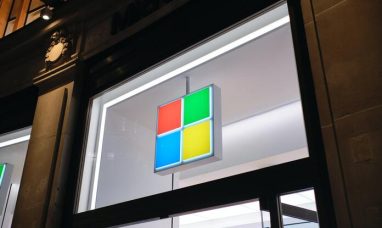McDonald’s (NYSE:MCD) reported its Q2 earnings on Monday, revealing a challenging quarter as consumers tightened their belts. The fast-food giant missed Wall Street estimates across revenue, earnings, and same-store sales, highlighting the impact of current economic conditions even on America’s most dominant fast-food player.
Financial Performance and Key Metrics
For the quarter ending June 30, McDonald’s reported revenue of $6.49 billion, a 2.01% year-over-year increase but below the expected $6.63 billion. Adjusted earnings per share came in at $2.97, missing the forecasted $3.07.
Global same-store sales, encompassing company-owned and franchised locations, decreased by 1%, compared to the anticipated 0.84% increase. This marks the first quarterly decline in same-store sales since Q4 2020 during the COVID-19 shutdowns. In the US, same-store sales fell by 0.7%, driven by a drop in foot traffic, despite being partially offset by menu price increases.
Consumer Spending Trends
“Consumers are more discriminating with their spend,” said CEO Chris Kempczinski in the earnings release. The company is focusing on “outstanding execution” of providing “reliable everyday value” and “accelerating strategic growth drivers like chicken and loyalty.”
To counteract years of price hikes, fast-food restaurants, including McDonald’s, introduced various limited-time bundle deals in Q2. McDonald’s launched its $5 meal deal towards the end of the quarter on June 25, aiming to reinforce its market position as a value leader. The deal includes a choice of a McDouble burger or McChicken sandwich, four-piece chicken McNuggets, small fries, and a small soft drink.
Despite these efforts, Kempczinski acknowledged that McDonald’s value leadership gap has shrunk, stating, “Consumers still recognize us as the value leader versus our key competitors, but it’s clear that our value leadership gap has recently shrunk. We are working to fix that with pace.”
International Challenges
Internationally, McDonald’s owned locations saw a 1.1% decline in same-store sales due to negative sales growth in several markets, particularly France. International franchised locations experienced a 1.3% year-over-year sales drop, influenced by the ongoing impact of the Middle East conflict and declining growth in China.
Kempczinski highlighted the competitive environment in China, stating, “Consumer sentiment in China is quite weak, and you’re seeing both in our industry and across a broad range of consumer industries, the consumer being very, very much deal seeking.”
Loyalty Program and Digital Growth
In response to the challenging environment, McDonald’s loyalty program brought in nearly $7 billion in digital sales across 50 markets in Q2, up from $6 billion in Q1. Over the past 12 months, loyalty members have contributed $26 billion in systemwide sales.
Outlook and Strategic Initiatives
Looking ahead, many investors are focused on McDonald’s outlook for the second half of the year and its potential to regain sales growth and foot traffic momentum. The company revised its 2024 outlook for the third time this fiscal year, now expecting global revenue growth in the low single digits, down from the previous range of 7% to 10%.
Global and US same-store sales are projected to see a low single-digit decline or remain flat, a downgrade from the previously expected 4% to 6% growth. In China, same-store sales are anticipated to decline in the single digits, reversing the prior forecast of low-single-digit growth.
Earnings Summary and Analyst Insights
Here’s what McDonald’s reported for Q2 compared to Wall Street expectations, based on Bloomberg consensus data:
- Revenue: $6.49 billion versus $6.63 billion
- Adjusted earnings per share: $2.97 versus $3.07
- Global same-store sales growth: -1.0% versus +0.84%
- US same-store sales growth: -0.7% versus +1.04%
- International-owned same-store sales growth: -1.1% versus +1.85%
- International franchised same-store sales growth: -1.3% versus +0.41%
Citi analyst Jon Tower noted, “Sentiment here is low, with many believing near-term initiatives around value offering not enough of a traffic lift to offset mix headwinds. Longer-term investors see valuation as compelling, with the company’s value plays eventually working.”
BTIG analyst Peter Saleh suggested that McDonald’s $5 meal deal might be extended while the company develops a permanent value platform. This strategic initiative aims to attract low-income customers, bringing incremental sales and enhancing the brand’s affordable image.
Conclusion
As McDonald’s navigates these challenging economic conditions, the company continues to adapt its strategies to maintain market leadership. Investors will closely watch the Q2 earnings impact and the effectiveness of new initiatives in driving growth and sustaining customer loyalty.
Featured Image: Freepik















